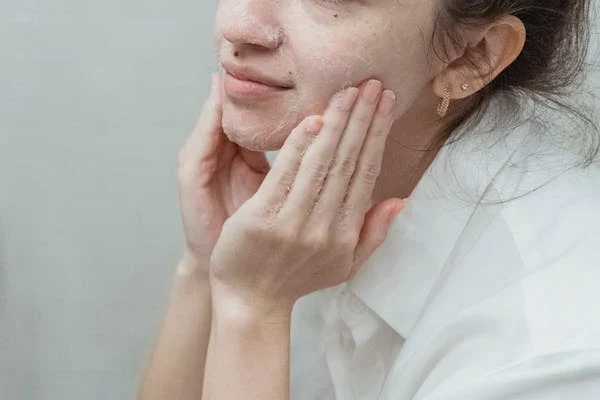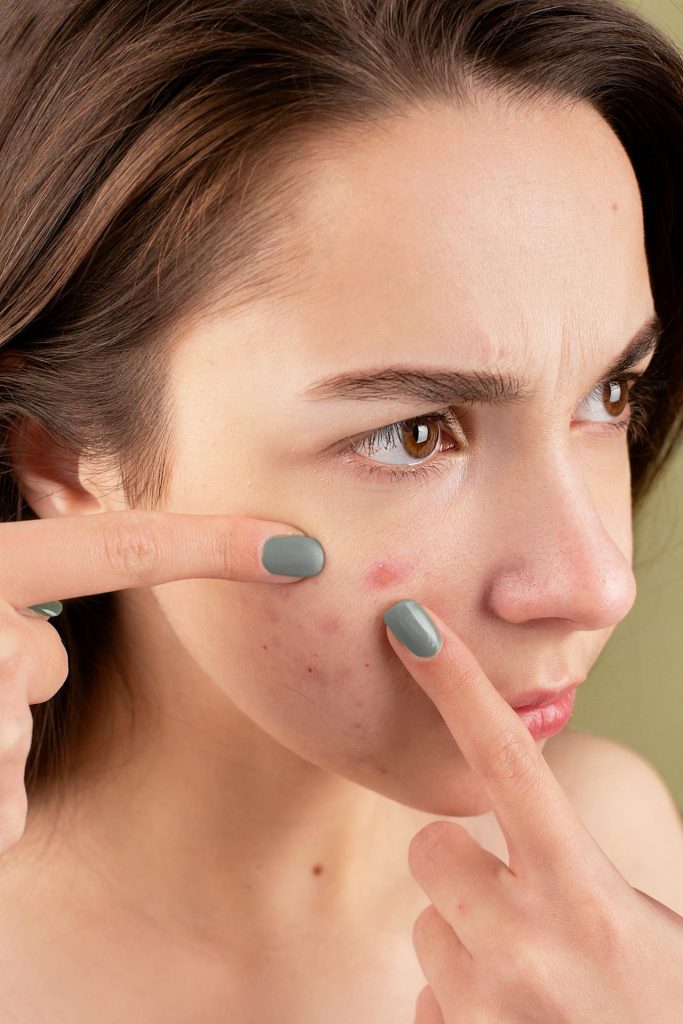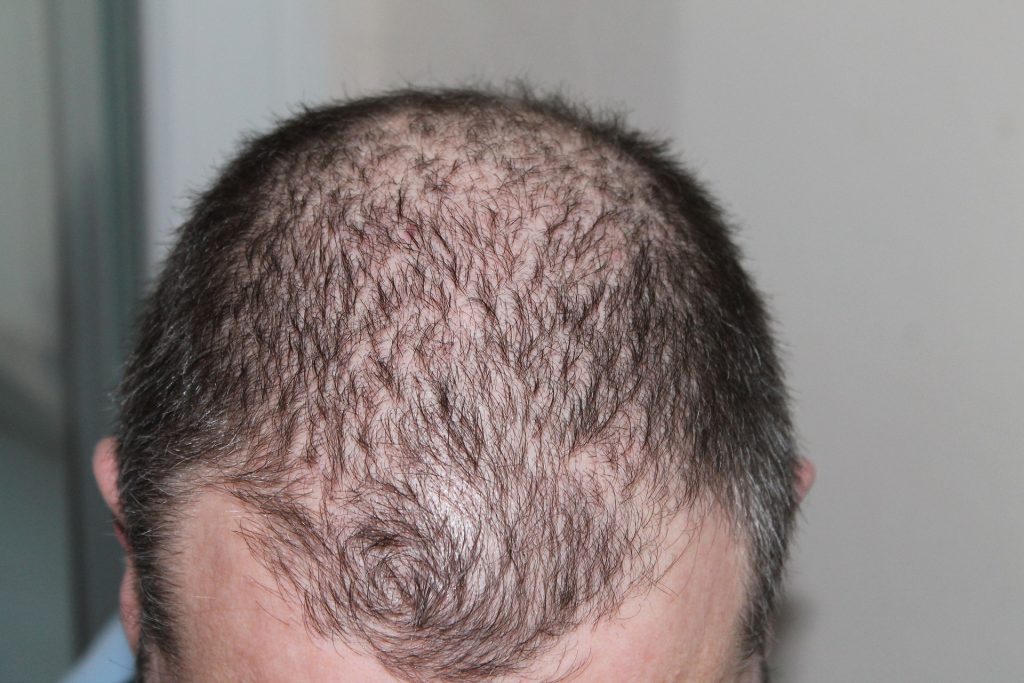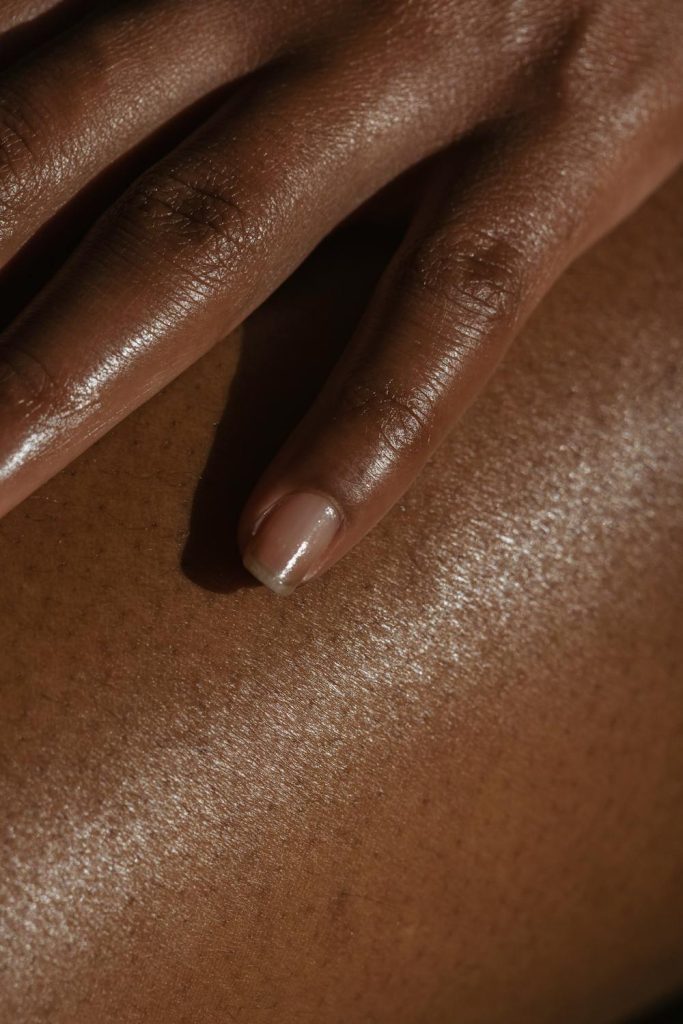
Ever stare at a shelf overflowing with “Face Wash” and “Cleanser” options, feeling totally lost? You’re not alone! Many people get confused by the difference between face wash vs. cleanser But fear not, this guide will be your hero!
We’ll break down the world of Face Wash vs. Cleanser in simple terms. We’ll explain what each product does, how to use Face Wash vs. Cleanser effectively, and ultimately help you pick the perfect face wash and cleanser for your unique skin.
So, whether you’re a skincare newbie or a seasoned cleanser pro looking for a refresher, this article will equip you with the knowledge to become a face-washing champion! Let’s dive in and discover the best approach for your skincare routine!
Table of Contents
ToggleWhat is a Face Cleanser?
Face Cleanser: Keeping Your Skin Clean and Happy
Ever wondered what those bottles of “cleanser” on the shelf actually do for your skin? Here’s the answer: a face cleanser acts like a cleaning agent specifically designed for your face.
What does a face cleanser do?
- Face Cleanser Removes Dirt and Oil: Throughout the day, your face comes in contact with dirt, oil, and sweat. A cleanser helps wash away these impurities, leaving your skin feeling clean and refreshed.
- Face Cleanser Maintains Moisture: Unlike harsh soaps, most cleansers are formulated to cleanse gently without stripping your skin of its natural moisture. This is important for keeping your skin healthy.
- Prepares for Other Products: Cleansing your face removes dirt and oil that can block pores. This allows other skincare products, like moisturizers or serums, to be absorbed more effectively.
What is a Face Wash?
Face wash offer a more powerful cleaning action compared to cleansers.
Here’s a closer look at what face washes do:
- Deeper Clean: Face washes are designed to remove more stubborn impurities from your face, like:
- Dirt and oil build-up
- Makeup residue
- Dead skin cells
- Targeted Ingredients: Some face washes contain specific ingredients to address different skin concerns. For example, salicylic acid can help with oily skin, and benzoyl peroxide can target acne.
- Stronger Cleaning Power: While effective at removing dirt and oil, face washes can be a bit harsher than cleansers.
What is the Differences Between Face Wash vs. Cleanser?
Key Differences Between Face Wash and Cleanser: A Breakdown
Choosing the right product to cleanse your face can be tricky. Here’s a breakdown of the key differences between face wash and cleanser to help you pick the one that suits your skin type:
A. Cleaning Power of Face Wash Vs. Cleanser:
1. Face Wash:
Face washes are designed for deeper cleaning. Face washes typically contain surfactants, which are ingredients that help lift dirt, oil, makeup, and dead skin cells from the surface of the skin. They can also penetrate deeper into pores to remove buildup and prevent clogged pores and breakouts. Because of these stronger cleansing abilities, face washes may feel slightly more drying on the skin, especially if you have dry or sensitive skin.
2. Cleanser:
Focuses on gentle cleansing. Cleansers are formulated to remove everyday impurities like dirt, oil, and sweat without stripping away the skin’s natural moisture barrier. They often contain milder surfactants and may also be enriched with soothing and hydrating ingredients. Cleansers are generally less drying than face washes and are a good choice for people with dry, sensitive, or mature skin.
B. Ingredients Types of Face Wash vs Cleanser:
1. Face Wash:
May contain specific ingredients to address concerns like oily skin. Look for ingredients like salicylic acid (oil control) or benzoyl peroxide (acne). Can be slightly harsher due to these targeted ingredients.
2. Cleanser:
Often formulated with hydrating ingredients like hyaluronic acid or glycerin. Helps maintain the skin’s natural moisture balance. Gentler due to the focus on hydration.
C. Who Needs What:
1. Oily/Combination Skin:
A face wash with targeted ingredients like salicylic acid might be a good choice for deeper cleaning and oil control.
2. Dry/Sensitive Skin:
A gentle cleanser with hydrating ingredients will help remove everyday impurities without causing irritation.
D. Foam and Texture:
1. Face Wash:
- Lathers Up: Creates a foamy texture when used. This foaming action helps deeply cleanse your face by lifting away dirt, oil, makeup, and even some dead skin cells.
- Similar to Soap: Feels similar to regular soap in terms of texture and ease of use. You can easily lather it up and rinse it off, taking away impurities.
2. Face Cleanser:
- Gentle Touch: Doesn’t produce foam. Its focus is on gently removing everyday dirt and oil without stripping your skin’s natural moisture.
- Milder Experience: Provides a milder cleansing experience compared to face wash. This makes it ideal for those with sensitive skin who might find face wash too harsh.
E. Best Time to Use:
1. Face Wash:
- Morning Cleanse: Ideal for use in the morning to kickstart your day with a clean and refreshed face.
- Removes Buildup: Helps remove any oil or sweat that might have accumulated overnight, leaving your skin feeling prepared for the day’s activities.
2. Face Cleanser:
- Nighttime Routine: Best used in the evening before going to bed.
- Washes Away the Day: Effectively removes makeup, dirt, and other impurities that accumulate throughout the day.
- Soothes and Rejuvenates: The gentle cleansing action helps soothe the skin and promote overnight rejuvenation.
F. Gentle Care for Your Skin:
1. Face Wash:
- Effective Cleansing: Offers a gentle yet effective cleansing experience, making it suitable for daily use for most skin types.
- Refreshed Feeling: Leaves the skin feeling refreshed and revitalized, perfect for removing dirt and grime after a busy day.
2. Face Cleanser:
- Sensitive Skin Savior: Provides a milder cleansing action, making it ideal for people with sensitive or dry skin.
- Moisture Balance: Helps maintain the skin’s natural moisture balance while effectively removing impurities. This is crucial for those with sensitive skin who are prone to dryness or irritation.
Popular Face Wash Types:
- Foaming Face Wash: Makes lots of bubbles, like soap that lathers up a lot. Great for oily skin because it can wash away extra oil and dirt.
- Gel Face Wash: Feels light and refreshing on your skin. Good for combination skin that can be oily sometimes and dry sometimes.
- Creamy Face Wash: Soft and gentle, like lotion for your face. Perfect for dry skin because it cleans without making your skin feel even drier.
Popular Face Cleanser Types:
- Micellar Water: This is a gentle cleanser that removes dirt and oil from your face. It works like a magnet picking up tiny pieces of dirt. Micellar water is very gentle on all types of skin, even sensitive skin.
- Balm Cleanser: This is an oil-based cleanser that melts away makeup and dirt. Great for dry skin or if you wear a lot of makeup. You can also use it for a double cleanse! That means washing your face twice in a row, once with balm cleanser and once with another cleanser.
- Clay Cleanser: This is a mask-like cleanser that absorbs oil from your skin and tightens pores. This one is best for oily skin.
Choosing the Right Cleanser for Your Skin Type
Choosing the right cleanser is crucial for maintaining a healthy and balanced complexion. Remember, cleansers primarily target everyday impurities while aiming to preserve the skin’s natural moisture barrier. Here are the factors to picking the perfect cleanser based on your unique skin type:
1. Oily or Acne-Prone Skin:
- Target Ingredients: Look for cleansers containing ingredients that combat excess oil and prevent breakouts.
- Salicylic Acid: A powerful exfoliant that helps unclog pores and reduce oil production.
- Tea Tree Oil: Possesses natural antibacterial properties that can help fight acne-causing bacteria.
Recommended Cleanser Types:
- Gel Cleansers: Offer a lightweight texture that effectively removes excess oil without stripping the skin.
Foam Cleansers: Create a lathering action that deeply cleanses the pores, removing dirt and oil buildup.
2. Dry or Sensitive Skin:
- Gentle Touch is Key: Opt for cleansers formulated with hydrating and soothing ingredients to prevent irritation and dryness.
- Hyaluronic Acid: A humectant that attracts and retains moisture in the skin, promoting hydration.
- Ceramides: Natural lipids that strengthen the skin barrier, protecting it from environmental damage.
Recommended Cleanser Types:
- Cream Cleansers: Offer a richer texture that provides extra nourishment and hydration.
- Micellar Water: A gentle cleansing solution that effectively removes impurities without disrupting the skin’s natural balance.
- Oil Cleansers: While seemingly counterintuitive for oily skin, oil cleansers can be effective for dry skin types. They dissolve makeup and impurities while leaving the skin feeling soft and supple. (Note: Always follow up with a water-based cleanser after using an oil cleanser.)
Choosing the Right Face Wash for Your Skin Type
Choosing the right face wash goes beyond just cleaning your face. It’s about addressing specific skin concerns and ensuring your skin type receives the care it needs. Here are the factors to picking the ideal face wash based on your unique characteristics:
Targeting Specific Concerns:
While regular cleansing is crucial, face washes can be formulated to address particular issues:
Acne-Prone Skin:
- Look for ingredients like benzoyl peroxide or salicylic acid.
- These ingredients combat acne-causing bacteria and unclog pores, preventing future breakouts.
Aging Skin:
- Seek face washes containing anti-aging ingredients like retinol or peptides.
- These components help diminish the appearance of fine lines and wrinkles, promoting a youthful look.
Hyperpigmentation:
- Choose a face wash formulated with brightening ingredients like vitamin C or kojic acid.
- These ingredients help reduce the visibility of dark spots and even out your skin tone for a radiant complexion.
Remember:
- Increased Potency, Potential Drawbacks: Face washes with active ingredients might be more drying or irritating.
- Hydration is Key: Always follow up with a moisturizer suitable for your skin type to counteract any potential dryness and keep your skin protected.
Tailoring the Choice to Your Skin Type:
Beyond addressing concerns, it’s vital to consider your skin type:
Oily Skin: Opt for face washes labeled “oil-control” or “foaming.” These often contain salicylic acid to regulate oil production and prevent clogged pores.
Dry Skin: Choose “gentle” or “hydrating” face washes. These typically have a creamier texture and contain ingredients like hyaluronic acid to prevent excessive dryness.
Combination Skin: Look for “combination” face washes that offer a balance between cleansing and hydration. Gel-based formulas are often suitable for this skin type.
Sensitive Skin: Select fragrance-free, hypoallergenic face washes. These are formulated to be gentle and minimize the risk of irritation.
How to Properly Cleanse Your Face
Having chosen the ideal cleanser or face wash for your skin type, here’s how to ensure a proper cleansing routine:
1. Tepid Water is Key:
Splash your face with lukewarm water. Avoid excessively hot water, which can strip away your skin’s natural oils, leaving it feeling dry and irritated.
2. Less is More:
Apply a small amount of your chosen cleanser or face wash onto your fingertips. Remember, a little goes a long way.
3. Gentle Massaging:
Gently massage the product onto your entire face using circular motions. Focus on areas prone to oiliness or congestion, like the forehead, nose, and chin. Be gentle – scrubbing harshly can irritate your skin.
4. Rinse Thoroughly:
After massaging for about a minute, thoroughly rinse your face with lukewarm water. Ensure all traces of cleanser or face wash are removed.
5. Pat, Don’t Rub:
Use a clean towel to gently pat your face dry. Avoid rubbing, as this can cause friction and potentially irritate your skin.
6. Complete the Routine:
Lock in hydration and nourish your skin by following up with your usual skincare routine. This might include toners, serums, and moisturizers suitable for your skin type.
Common Mistakes to Avoid When Using Cleanser and Face Wash
While using cleanser and face wash can do wonders for your skin, it’s essential to avoid common mistakes that can compromise the effectiveness of these products. Here are some mistakes to steer clear of:
1. Over-cleansing:
Cleansing your face more than twice a day can strip away your skin’s natural oils, leading to dryness and irritation. Stick to cleansing in the morning and evening.
2. Using harsh cleansers:
Harsh cleansers can disrupt your skin’s pH balance and cause dryness or redness. Opt for gentle cleansers that are suitable for your skin type.
3. Rinsing with hot water:
Hot water can be too harsh for your skin and strip away its natural moisture. Stick to lukewarm water when rinsing your face.
4. Using abrasive scrubbers or washcloths:
Scrubbing your face too vigorously can cause irritation or redness. Use gentle circular motions with your fingertips instead.
5. Neglecting to remove all traces of cleanser or face wash:
Leaving residue on your skin can clog your pores and lead to breakouts. Always rinse thoroughly and pat dry.
visit –
Best Mattress to Buy in India – Your Comprehensive Guide
Check Out Best Face Wash for Oily Skin on Amazon-
- Cetaphil Oily Skin Face Wash for Acne prone Skin and Gentle Foaming
- Minimalist 2% Salicylic Acid Face Wash For Oily Skin
- Dot & Key CICA Face Wash for Acne Prone Oily Skin
- Simple Kind To Skin Refreshing Facial Wash
Check Out Best Face Wash for Dry Skin On Amazon
- Cetaphil Face Wash Gentle Skin Cleanser for Dry to Normal, Sensitive Skin,
- DOT & KEY Barrier Repair + Hydrating Gentle Face Wash for Dry Skin
- Minimalist 5% Aquaporin Booster | Face Wash For Dry Skin
- NIVEA Milk Delights Face Wash Moisturizing Honey For Dry Skin
Check Out Face Cleanser for Dry Skin on Amazon
FAQS
-
1. Should I use face wash or cleanser for acne?
It depends on your skin type and preferences. Face washes are often formulated with active ingredients like salicylic acid or benzoyl peroxide, which can help target acne and unclog pores. On the other hand, cleansers are gentler and may be more suitable for sensitive or dry skin types. Experiment with both to see which works best for you, and consider consulting with a dermatologist for personalized advice.Answer
-
2. Which is better, cleanser or face wash?
There's no one-size-fits-all answer. It depends on your skin type and specific needs. Face washes are great for deep cleansing and targeting acne, while cleansers are gentler and better suited for sensitive skin. Experiment with both to find what works best for you.
-
3. What's the difference between face wash and cleanser?
- Face Wash: Designed for deeper cleaning, tackling dirt, oil, makeup, and even dead skin cells. Often contains foaming agents for a more thorough cleanse.
- Cleanser: Focuses on gentle cleansing, removing everyday impurities like dirt, oil, and sweat. Formulated with hydrating ingredients to maintain moisture balance.
-
4. Which one should I use?
- Oily/Combination Skin: Face wash with oil-control ingredients (salicylic acid) for deeper cleansing.
- Dry/Sensitive Skin: Cleanser with hydrating ingredients (hyaluronic acid) for gentle cleansing without irritation.
-
5. Do I need both a cleanser and face wash?
Not necessarily. You can choose one based on your skin type. Nighttime: Cleanser is ideal for removing makeup and daily impurities. Morning: Face wash (oily skin) or cleanser (dry skin) can be used.
-
6. What are the different types of face washes?
- Foaming: Great for oily skin, removes excess oil and dirt.
- Gel: Light and refreshing, good for combination skin.
- Creamy: Gentle and soft, perfect for dry skin.
-
7. What are the different types of cleansers?
- Micellar Water: Gentle, removes dirt and oil, suitable for all skin types.
- Balm Cleanser: Oil-based, melts away makeup and dirt, ideal for dry skin or heavy makeup removal.
- Clay Cleanser: Absorbs oil and tightens pores, best for oily skin.
-
8. My skin feels tight after cleansing. What should I do?
This might indicate a harsh cleanser. Switch to a gentler cleanser with hydrating ingredients.
-
9. I have oily skin and sweat a lot. Which product should I use?
A face wash with oil-control ingredients might be better for removing sweat and preventing clogged pores.
-
10. My skin is sensitive and prone to redness. What should I avoid?
Harsh cleansers, hot water, and scrubbing. Opt for gentle cleansers, lukewarm water, and gentle cleansing motions.
-
11. Can I use a regular bar soap as a face wash?
It's not recommended. Bar soaps can be too harsh and disrupt your skin's natural pH balance.
-
12. How often should I cleanse my face?
It's generally recommended to cleanse your face twice a day – once in the morning and once before bedtime. This helps remove dirt, oil, and impurities that accumulate throughout the day and night, keeping your skin clean and refreshed. However, if you have particularly oily or acne-prone skin, you may benefit from cleansing more frequently, such as after sweating heavily or engaging in physical activity. Ultimately, listen to your skin's needs and adjust your cleansing routine accordingly.




